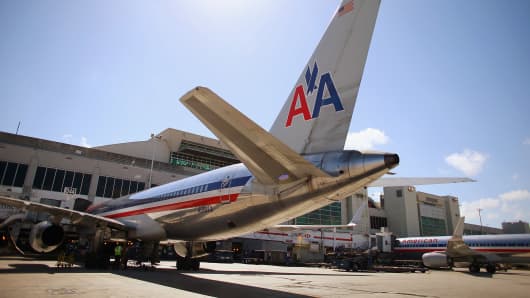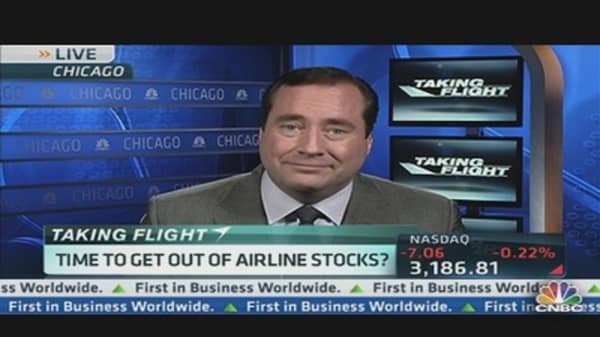"You have airlines like Southwest, JetBlue, Virgin America, Allegiant and Spirit bringing low fares," he said. "Even if an American-US Airways merger moved forward, the industry is still highly fragmented among multiple carriers and fares would not spike."
And another analyst notes an overall trend of rising airfares regardless of mergers such as United-Continental in 2010 and Delta-Northwest in 2008.
"Airlines will attempt to raise fares with or without more industry consolidation," said Robert Mann of airline consulting firm R.W. Mann and Co. He adds, however, that a more consolidated industry could bring additional paring of seats, leading to fewer "low fare seats for sale."
Airline Alliances
Most major airlines belong to global alliances that allow for seamless processing of passenger tickets and reciprocal frequent-flier benefits. American belongs to oneworld, while US Airways is a member of Star Alliance along with United.
"The airline has already announced that it will remain in oneworld if a merger is to take place," said Henry Harteveldt. "This won't be an enormous set-back for Star Alliance, but it does mean that Star will be weaker for travel to/and through the southeastern U.S. and into leisure areas like Florida and the Caribbean."
But the process of leaving the Star Alliance won't be an easy one. It will be a "lengthy and expensive divorce," said Robert Mann.
Frequent-Flier Program Changes
It's likely at this point that American would remain the name of the merged carrier, bringing the AAdvantage frequent-flier program with it. Members of US Airways' Dividend Miles program would be integrated into AAdvantage — similar to how Continental's OnePass members were brought into United's MileagePlus program when the two airlines merged.
"I don't think we'd see a complete merger of AAdvantage and Dividend Miles until about 12-18 months after the formal announcement (probably toward the longer end of that time frame), so there would be no immediate changes to the mileage programs, although perhaps the two would let members transfer miles between their accounts like United and Continental did," said Brian Kelly, owner of ThePointsGuy.com.
Since the two airlines have differing levels of elite tiers, some changes would likely occur.
"I would predict that the new airline will take US Airways' model for elite status and expand its program to include four (mileage-based) tiers—25,000/50,000/75,000/100,000—instead of the three—25,000/50,000/100,000—that American currently has," said Kelly.
But managing this process will be a critical undertaking.
"From a marketing perspective, how they move forward with their elite program and future earnings credit may be one of the most important challenges facing a merged airline," said Henry Harteveldt.
Mergers Don't Happen Overnight
Finally, should a merger be announced, there's a lot of work to be done before the two carriers officially combine.
"The deal also has to receive Department of Justice approval due to anti-trust and other concerns," said Henry Harteveldt. "It's possible that DOJ may impose requirements for the deal to be approved that the airlines find unacceptable."
If a deal is approved, frequent-fliers will see a gradual marriage of the two airlines.
"Customer facing aspects get done quicker and easier, the IT and infrastructure aspects more slowly, more complicated, over time," said Robert Mann.





